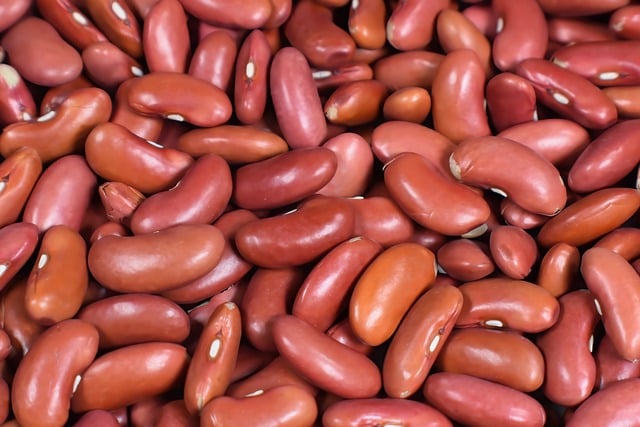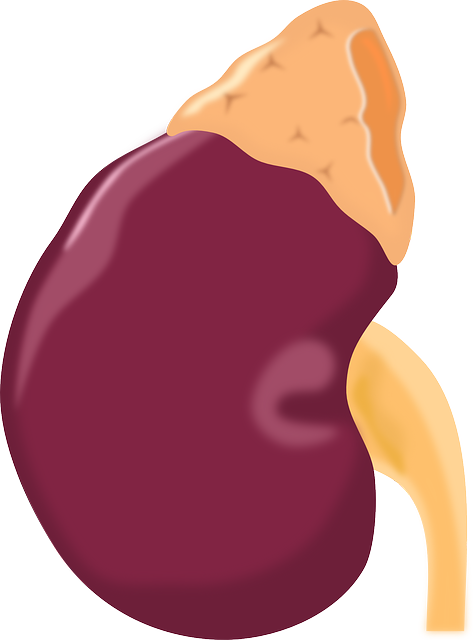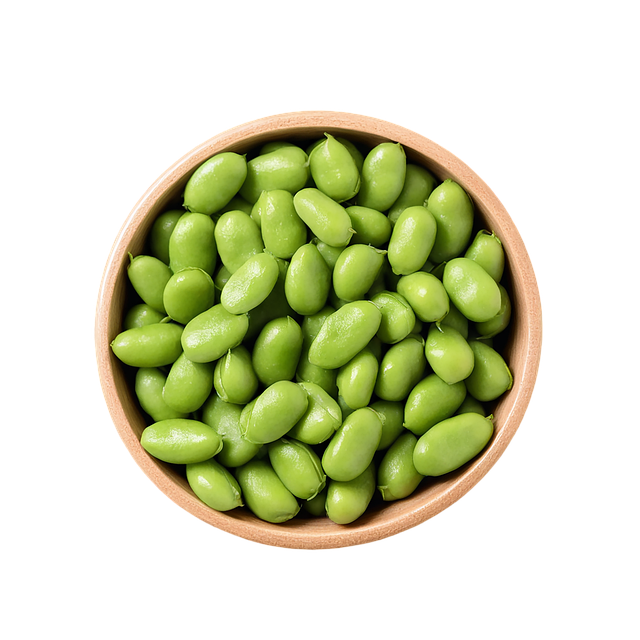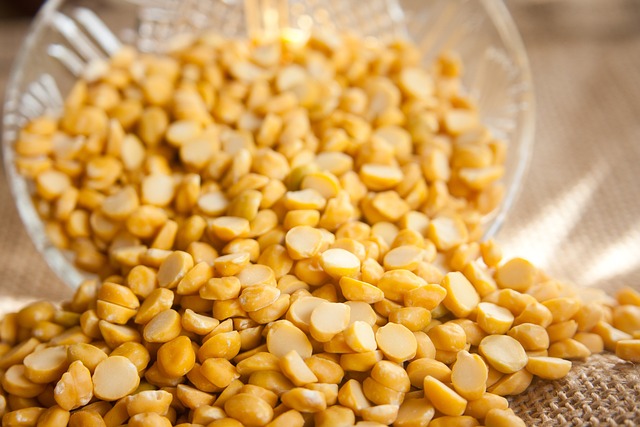Kidney beans are a highly beneficial legume for heart health and blood sugar management, rich in soluble fiber that effectively lowers LDL cholesterol by binding with it in the digestive system. They are an excellent addition to a plant-based diet, offering cardiovascular advantages without adding extra cholesterol. Cooking methods like boiling, steaming, or pressure cooking help preserve their nutritional benefits, including antioxidants that combat oxidative stress and inflammation. These beans also provide essential vitamins and minerals such as potassium, magnesium, and iron. Incorporating kidney beans into various meals—breakfast oatmeal, lunch salads, hummus snacks, or dinners like chili and stews—enhances both flavor and nutritional content for a heart-healthy diet. For those on a plant-based diet, kidney beans offer a substantial source of protein and fiber, which are crucial for maintaining healthy cholesterol levels and controlling blood sugar. Including them in your meal plan not only aligns with a health-conscious lifestyle but also supports overall well-being.
Discover the heart-healthy prowess of kidney beans, a legume that’s not only rich in fiber and plant-based protein but also boasts impressive cholesterol-lowering properties. This article delves into the multifaceted benefits of kidney beans for those conscious of their cardiovascular well-being. From understanding their nutritional contributions to integrating them into your diet with delicious and diverse recipes, we’ll explore how these versatile beans can be a cornerstone in a plant-based diet, aid in blood sugar control, and significantly contribute to lowering cholesterol levels. Join us as we unveil the science behind their heart health advantages and provide practical guidance on preparing them for maximum nutritional impact. Whether you’re a health enthusiast or looking to manage your cholesterol naturally, this article is your guide to harnessing the full potential of kidney beans for a healthier heart.
- Unlocking the Heart-Healthy Secrets of Kidney Beans: A Deep Dive into Their Cholesterol-Lowering Properties
- The Nutritional Powerhouse Behind Kidney Beans: Understanding Their Role in a Plant-Based Diet and Blood Sugar Control
- Integrating Kidney Beans into Your Diet: Versatile Preparation Ideas for Every Meal
- The Science of Soybeans and Heart Health: How Kidney Beans Help in Lowering Cholesterol Levels
- Kidney Beans' Impact on Cholesterol: What the Research Says
Unlocking the Heart-Healthy Secrets of Kidney Beans: A Deep Dive into Their Cholesterol-Lowering Properties

Embarking on a journey to enhance heart health often involves a myriad of dietary considerations. Among the most beneficial foods for cardiovascular well-being are kidney beans, a staple in many cultures and a shining example of plant-based nutrition. These legumes, rich in fiber and protein, play a pivotal role in blood sugar control and cholesterol management, offering significant health benefits. The soluble fiber present in kidney beans is particularly adept at binding with cholesterol in the digestive system, effectively reducing the amount of harmful LDL cholesterol circulating in the bloodstream. This fiber-rich quality makes them an excellent inclusion for individuals aiming to lower their cholesterol levels naturally. Moreover, incorporating kidney beans into a plant-based diet not only contributes to heart health but also promotes overall wellness, as they are low in fat and devoid of cholesterol altogether.
Including kidney beans in one’s diet is straightforward and versatile, with numerous cooking methods to suit any palate or culinary preference. They can be prepared in a myriad ways: boiled, steamed, roasted, or even sprouted for enhanced nutritional value. For those conscious of their cholesterol intake, replacing meat with kidney beans in dishes like chili, soups, stews, and salads is a simple yet impactful way to enhance heart health without compromising flavor or satisfaction. The key is to ensure that these beans are properly cooked to maximize their nutritional benefits and palatability. When combined with other heart-healthy foods such as whole grains, nuts, fruits, and vegetables, kidney beans become a cornerstone of a balanced plant-based diet, offering a bounty of health advantages, including improved cholesterol levels and stabilized blood sugar control.
The Nutritional Powerhouse Behind Kidney Beans: Understanding Their Role in a Plant-Based Diet and Blood Sugar Control

Kidney beans are a nutritional powerhouse, offering a wealth of health benefits that are particularly pronounced within the context of a plant-based diet. These legumes are celebrated for their high fiber content, which plays a pivotal role in promoting blood sugar control and preventing spikes post-consumption. The soluble fiber found in kidney beans forms a gel-like substance in the digestive system that binds with cholesterol-rich bile acids, effectively lowering circulating LDL cholesterol levels and thereby offering cardiovascular protection. This cholesterol-lowering effect is a significant advantage for those looking to manage or prevent heart disease.
Incorporating kidney beans into a plant-based diet not only enhances the nutritional profile of meals but also provides a satisfying and versatile protein alternative. They are particularly rich in antioxidants, which combat oxidative stress and inflammation within the body. The abundance of vitamins and minerals, including potassium, magnesium, and iron, contributes to overall health while complementing the plant-based diet’s focus on whole foods. To harness these benefits, cooking kidney beans properly is essential. They can be prepared in a myriad of ways, from traditional boiling or slow-cooking to pressure-cooking for a quicker option, or even incorporating them into salads, stews, and soups for a hearty and healthful addition to any plant-based meal plan. Proper preparation not only enhances the flavor but also maximizes nutrient absorption and digestibility, making kidney beans a valuable component in anyone’s diet aiming to promote heart health and maintain balanced blood sugar levels.
Integrating Kidney Beans into Your Diet: Versatile Preparation Ideas for Every Meal

Including kidney beans in your diet can be a delicious and nutritious way to support heart health and control blood sugar levels. These legumes are rich in soluble fiber, which helps lower cholesterol by binding with it in the digestive system and removing it from the body. This action not only benefits the cardiovascular system but also contributes to maintaining healthy blood sugar levels, making kidney beans an excellent choice for those following a plant-based diet.
Kidney beans are incredibly versatile and can be integrated into meals throughout the day. For breakfast, consider adding them to your oatmeal or whole grain cereal for a fiber-rich start to your day. At lunch, a kidney bean salad with mixed greens, nuts, and a vinaigrette dressing is both satisfying and heart-healthy. As a snack, hummus dip with raw kidney beans offers a crunchy, protein-packed option. For dinner, they can be the main ingredient in a hearty chili or stew, or even mashed as a side dish to complement your main course. Additionally, incorporating kidney beans into a stir-fry or as a protein substitute in tacos and burritos adds variety and nutritional value to your plant-based meals. The key to cooking kidney beans is to soak them overnight, which reduces their anti-nutrients and can shorten cooking time. After soaking, they can be boiled, steamed, or pressure cooked until tender, with a wide range of seasonings and herbs to suit any palate. Whether you’re looking to enhance your heart health, control blood sugar, or simply add more plant-based options to your diet, kidney beans offer a simple yet effective solution.
The Science of Soybeans and Heart Health: How Kidney Beans Help in Lowering Cholesterol Levels

Including kidney beans in a plant-based diet can significantly contribute to heart health due to their unique composition and the nutrients they provide. The science behind this is rooted in the chemical structure of kidney beans, which contain soluble fiber and protective plant compounds known as phytobeenes. Soluble fiber is particularly adept at binding with cholesterol in the digestive system, thereby reducing its reabsorption and helping to lower LDL or ‘bad’ cholesterol levels. This binding action is crucial for maintaining healthy cholesterol levels and promoting cardiovascular health.
Moreover, kidney beans are a rich source of protein and complex carbohydrates, making them an excellent option for individuals following a plant-based diet. Their low glycemic index means they help in blood sugar control, which is another vital aspect of heart health. By incorporating kidney beans into meals as part of a balanced diet, one can harness their cholesterol-lowering benefits while also enjoying the various health advantages associated with a plant-based diet, including reduced risk of heart disease and better overall cardiovascular function. Cooking methods play a role in retaining these benefits; methods such as boiling or steaming are preferred to maintain the integrity of the beans’ fiber content and nutritional value, ensuring that the body can effectively utilize these compounds for health enhancement.
Kidney Beans' Impact on Cholesterol: What the Research Says

Recent scientific studies have highlighted the significant health benefits associated with incorporating kidney beans into a balanced diet, particularly in the context of cholesterol management. These legumes have been found to exhibit a favorable impact on cholesterol levels. The soluble fiber content in kidney beans is particularly noteworthy; it acts as a sponge, effectively absorbing and removing cholesterol from the body before it can be reabsorbed. This action has been consistently demonstrated in clinical trials, where participants who consumed kidney beans experienced a reduction in low-density lipoprotein (LDL), commonly known as ‘bad’ cholesterol, with no significant changes to high-density lipoprotein (HDL), the ‘good’ cholesterol.
Moreover, kidney beans are an excellent fit for those adhering to a plant-based diet, as they offer both protein and fiber, which are essential nutrients that can be challenging to obtain from plant sources alone. Their high protein content makes them a filling food, contributing to blood sugar control by slowing the rate at which glucose is absorbed into the bloodstream. This slow absorption helps maintain stable blood sugar levels, an important aspect for individuals with diabetes or those looking to manage their blood sugar more effectively. To harness these benefits, cooking kidney beans properly is crucial. They can be prepared in a variety of ways: boiled, steamed, or as part of a diverse array of dishes from chili and stews to salads and side dishes. Including kidney beans in your meals not only enriches the culinary experience with their distinctive flavor but also supports heart health and overall well-being when included as part of a plant-based diet.
Incorporating kidney beans into your diet offers a multitude of heart health benefits, particularly in the area of cholesterol management. The legume’s rich fiber and plant protein content, as highlighted throughout this article, play pivotal roles in promoting blood sugar control and contributing to a plant-based diet that is conducive to overall wellness. With diverse preparation methods ranging from savory entrées to nutritious side dishes, the versatility of kidney beans makes them an accessible and healthful addition to any meal plan. The scientific evidence supporting their cholesterol-lowering properties is compelling, suggesting that regular consumption of these beans can significantly improve heart health. In light of these findings, it’s clear that kidney beans are not just a nutritious choice but a heart-smart staple for anyone looking to reap the health benefits associated with a plant-based diet and effective cholesterol management.



